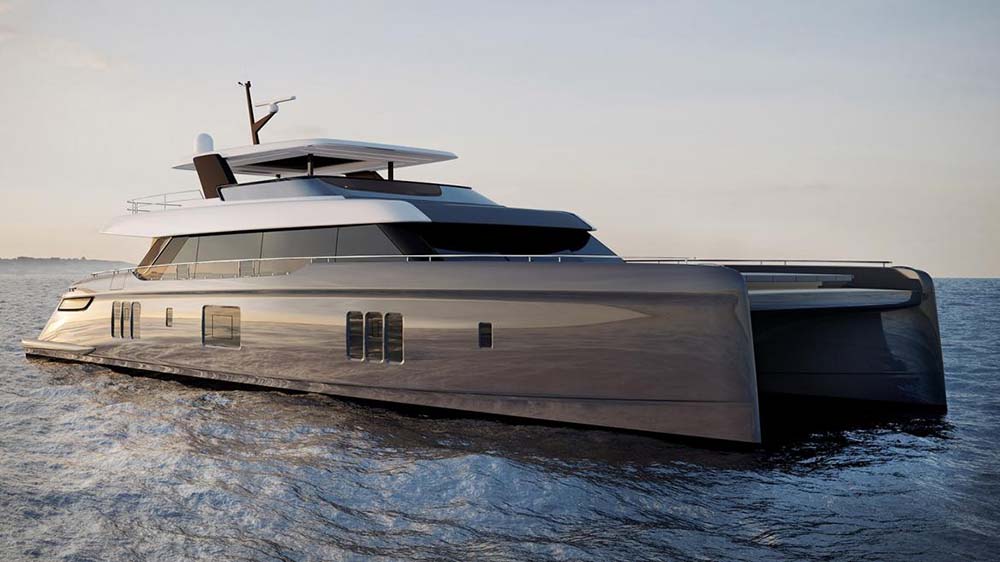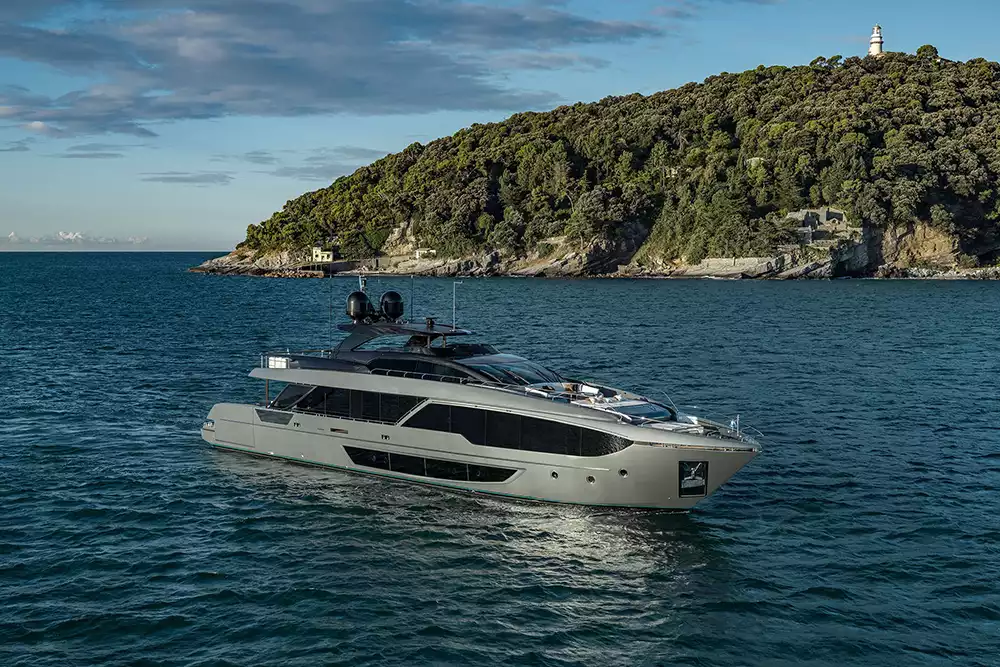As hurricane season ramps up, yacht owners may be wondering how their vessels will be kept safe during potential storms. Hurricanes are one of the major causes of damage to yachts, largely in part because the most attractive places to dock them are often in the path of oncoming storms. As a result, yacht owners need to take special care to ensure that their vessels are properly prepared for hurricanes. Luckily, there are several precautions that can be taken to minimize the damage a hurricane can cause. 
Best Practices Whenever You Leave Your Yacht Docked
There are best practices you should follow any time you are docking your yacht and leaving the vessel unattended, but they are even more important in case your yacht is in the path of a hurricane or tropical storm and you are unable to get back to it in time to prepare. Here are some of the key things to do any time you’re leaving your yacht docked.
- Make sure all hatches, ports, and seacocks are closed and secured. Needless to say, if you leave an opening in your yacht, water can come rushing in if the seas get rough or there is a storm.
- Check that all lines and fenders are properly secured and in good condition. In high winds, even the sturdiest lines can break or come loose, so it’s important to check them regularly and replace them as needed.
- Make sure your bilge pumps are working properly and that you have backup batteries in case of a power outage.
- If you can, ensure that all loose items on deck are stored away safely. Anything that isn’t properly secured could become a projectile in high winds and cause serious damage.
- Keep an up-to-date inventory of all your yacht’s contents, in case you need to make an insurance claim later.
- Keep your yacht fully maintained with routine cleanings and tune-ups. A well-maintained vessel is less likely to experience problems during a storm. Working with experienced technicians and electricians who specialize in yacht service can mean the difference between a yacht that weathers a storm successfully and one that sustains significant damage.
- Make sure you have the contact information for your insurance company and a copy of your policy readily available.
- Ensure that your emergency locator beacon is properly registered and up to date. In the worst-case situation that your yacht comes loose and floats along with flood waters, this could be the only way to locate your boat after the storm.
Are Large Vessels Like Yachts Safe From Hurricane Damage?
While no vessel is completely safe from hurricane damage, yachts have a few advantages that can help minimize the risk. First of all, because they are designed to float, they are less likely to be completely submerged and damaged by storm surges like homes and other structures on the land.
Of course, even the most well-prepared yacht is not immune to damage during a hurricane. While your yacht will withstand the heavy rains and winds of the hurricane, the surrounding boats and area may not be so lucky. If the dock or marina you’ve docked your yacht at becomes damaged, your yacht can come loose and float away or collide with other debris. Other unsecured boats in the area may also collide with yours, causing damage. If there is a large storm surge and flooding, your boat may even end up beached once the flood resides.
Another danger to yachts during hurricanes is the risk of fire. If power lines come down or transformers explode, the sparks can easily ignite any flammable materials on your yacht, such as canvas sails or fuel.
The Best Way To Keep Your Vessel Safe Is To Evacuate The Area
Of course, the best way to protect your yacht (and yourself) during a hurricane is to simply evacuate the area and move your boat to safer waters. If you have advance warning that a hurricane is headed your way, which is often the case thanks to modern meteorology, take the time to determine a place out of the path of the hurricane and move your yacht to a safe location well in advance of the storm. Unlike a house, you can pick up and move your yacht to a safe location, so take advantage of that ability.
If you cannot evacuate the area, the next best option is to find a marina or other facility that can provide hurricane-proof storage for your yacht. These facilities are typically reinforced with concrete walls and metal roofs to protect against high winds and flying debris. They will also have backup generators to keep the lights on and bilge pumps running in case of flooding.
Of course, hurricane-proof storage is not always an option, and it can be expensive. If you cannot afford to move your yacht or store it in a hurricane-proof facility, your best bet is to find a large, well-protected cove or inlet to ride out the storm. Look for a location that is away from bridges and other large structures that could collapse and cause damage. The closer you can get to land, the better, as this will provide some additional protection from high winds and waves.
Once you’ve found a safe location, secure your yacht as best as you can. Remove all loose items from the deck and stow them away safely. Anything that isn’t properly secured could become a projectile in high winds and cause serious damage. Make sure all of your hatches and portlights are closed and secure, and if possible, seal them shut with tape or storm panels.
If you have time, it’s also a good idea to remove any canvas or other fabric sails and stow them below the deck. In high winds, they could tear loose and do serious damage to your yacht.
Finally, once your yacht is secured, monitor local conditions and be prepared to take action if necessary. If the storm surge begins to rise or the winds pick up, you may need to move to a more protected location. Pay attention to weather and storm alerts, and be prepared to take action quickly if necessary.
Make Sure Your Insurance Policy Covers Hurricane Damage
Before a hurricane hits, it’s also important to make sure that your insurance policy covers hurricane damage. Most standard yacht insurance policies will not cover damage caused by hurricanes, so you’ll need to purchase a separate hurricane insurance policy or add an endorsement to your existing policy.
Hurricane insurance typically covers wind damage, storm surge, and flooding. It will also usually cover the cost of moving your yacht to a safe location in advance of the storm, as well as the cost of repairing any damage that is caused by the hurricane.
Make sure you understand exactly what is and is not covered by your hurricane insurance policy before a storm hits, so you know what to expect. And remember, even if your policy does cover hurricane damage, there may be a deductible that you will have to pay before your insurance kicks in.
The bottom line is that if you own a yacht, it’s important to take steps to protect it from hurricanes. By taking the time to prepare in advance, you can help keep your yacht safe during a hurricane. Remember, the best way to protect your investment is to evacuate the area well in advance of the storm. But if that’s not possible, take the time to secure your yacht and ride out the storm in a safe location. Stay safe, and best of luck.


